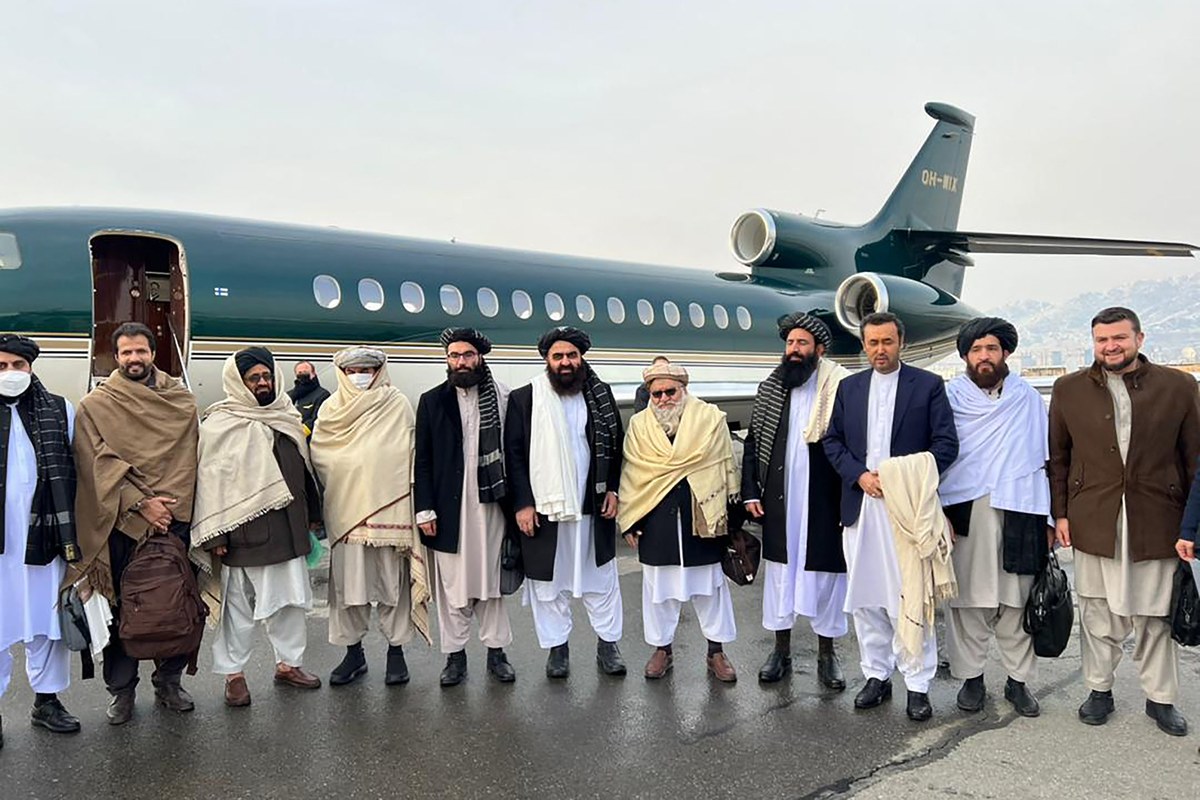OSLO, Norway: A Taliban delegation led by acting Foreign Minister Amir Khan Muttaqi on Sunday started three days of talks with Western government officials and Afghan civil society representatives in Oslo amid a deteriorating humanitarian situation in Afghanistan.
The closed-door meetings are taking place at a hotel in the snow-capped mountains above the Norwegian capital, Oslo, and the first day will see Taliban representatives meeting with women's rights activists and human rights defenders from Afghanistan and from the Afghan diaspora.
Before the talks, the Taliban’s deputy minister of culture and information tweeted a voice message he said was from Muttaqi, expressing hope for “a good trip full of achievements” and thanking Norway, a country he said he hopes will become “a gateway for a positive relationship with Europe.”
The trip is the first time since the Taliban took over the country in August that their representatives have held official meetings in Europe. Earlier, they traveled to Russia, Iran, Qatar, Pakistan, China and Turkmenistan.

This handout photograph released by the Afghan Taliban and taken on January 22, 2022 shows Afghanistan’s Foreign Minister Amir Khan Muttaqi (C), Taliban senior official member Anas Haqqani (R) and delegates posing for pictures before departing to Oslo, at the Kabul airport in Kabul, Afghanistan. (AFP)
During the talks, Muttaqi is certain to press the Taliban’s demand that nearly $10 billion frozen by the United States and other Western countries be released as Afghanistan faces a precarious humanitarian situation.
The United Nations has managed to provide for some liquidity and allowed the new administration to pay for imports, including electricity, but warned that as many as 1 million Afghan children are in danger of starving, and most of the country’s 38 million people are living below the poverty line.
The Norwegian Foreign Ministry said the Taliban delegation would also meet with Afghans in Norway, including “women leaders, journalists and people who work with, among other things, human rights and humanitarian, economic, social and political issues.”
“Norway continues to engage in dialogue with the Taliban to promote human rights, women’s participation in society, and to strengthen humanitarian and economic efforts in Afghanistan in support of the Afghan people,” the Foreign Ministry said in a statement.
A U.S. delegation, led by Special Representative for Afghanistan Tom West, plans to discuss “the formation of a representative political system; responses to the urgent humanitarian and economic crises; security and counterterrorism concerns; and human rights, especially education for girls and women,” according to a statement released by the U.S. State Department.
On Friday, Norwegian Foreign Minister Anniken Huitfeldt stressed that the visit was “not a legitimation or recognition of the Taliban. But we must talk to those who in practice govern the country today.”
“We are extremely concerned about the serious situation in Afghanistan,” Huitfeldt said, noting that economic and political conditions have created “a full-scale humanitarian catastrophe for millions of people” facing starvation in the country.
The Scandinavian country, home to the Nobel Peace Prize, is no stranger to sensitive diplomacy and has in the past been involved in peace efforts in a number of countries, including Mozambique, Afghanistan, Venezuela, Colombia, the Philippines, Israel and the Palestinian Territories, Syria, Myanmar, Somalia, Sri Lanka and South Sudan.















